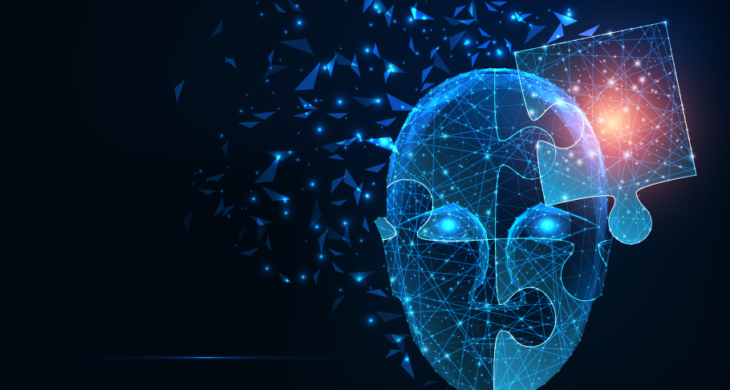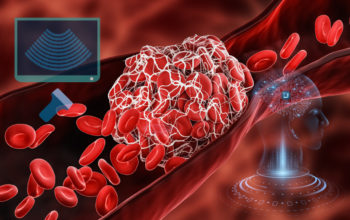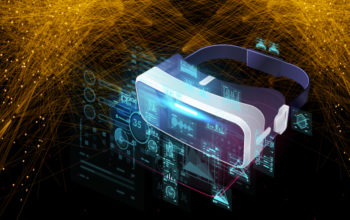
Date: 1st February 2021
The prevalence of autism spectrum disorder (ASD) is increasing globally, with an estimated 1 in 160 children having ASD worldwide. Whilst, intervention during early childhood is important to promote the optimal development and well-being of people with ASD, diagnosis can be difficult as there are currently no medical tests available, and ASD-risk biomarkers are lacking. Now, scientists use machine learning to identify specific patterns of maternal autoantibodies highly associated with the diagnosis and severity of a subgroup of autism, with 100% accuracy.
A biomarkers is a measurable indicator of a biological state or condition, and can be used as a risk factor for the presence or severity of some disease states. Previous work had identified the presence of a number of maternal autoantibodies to foetal brain proteins specific to the ASD subgroup, called maternal autoantibody-related (MAR) ASD, which accounts for around 20% of all autism cases.
Now, a team of scientists from the University of California and Stanford University, US, led by Judy Van de Water, have used machine learning to determine autoantibody patterns that specifically associated with diagnosis of MAR-ASD and have created and validated a simple, rapid and accurate maternal blood test to identify the risk factors of MAR-autism.
The Van de Water lab had previously discovered the presence of maternal autoantibodies against 8 proteins that are highly expressed in the developing brain of a foetus, and that can potentially react with the brain and alter its development. Building on this work the team wanted to create a serological assay to identify ASD-specific maternal autoantibody patterns of reactivity against these 8 proteins, and determine their relationship with ASD outcome severity.
The team started by using plasma from mothers enrolled in the CHARGE study, designed to uncover environmental causes of autism. Using plasma from 450 mothers with children diagnosed with ASD, and 342 of mothers with children not suspected of having autism, the team developed an ELISA (enzyme-linked immunosorbent assay) test for each of the 8 protein antigens.
They then used a machine learning (ML) algorithm to determine which autoantibody patterns were specifically associated with diagnosis of ASD. The ML algorithm analysed around 10,000 patterns and identified those that contained at least 3 of the 8 antigens, the three top patterns associated with MARS ASD were combinations containing CRMP1+GDA, CRMP1+CRMP2 and NSE+STIP1. These were the most abundant patterns and had 100% precision in training and validation sets.
If the mother had autoantibodies to CRIMP1 and GDA (the most common pattern), her odds of having a child with autism was 31 times greater than the general population, based on this dataset. The researchers also found that reactivity to CRMP1 in any of the top patterns significantly increased the odds of a child having more severe autism.
Conclusions and future applications
This work here marks the first report that has used ML to identify a set of biomarkers that demonstrated an association with MAR-ASD with 100% accuracy. With this set of maternal biomarkers there is the potential to diagnose MAR autism very early, meaning that more effective behavioural interventions can be made as early as possible.
In fact, this study opens the avenue for pre-conception testing. The team envision this will be particularly useful for high-risk women >35 years old, for those that have other ASD-associated maternal co-morbidities such as metabolic syndrome during pregnancy, or to those who have already an autistic child. This simple, accurate and novel serological risk assessment test would be highly informative for women prior to conception as a predictor of ASD diagnosis.
Looking ahead, the team will be further validating and testing the technology with the aim of clinical trials in the near future. They are also studying the pathological effects of the maternal autoantibodies using animal models. Whilst, the risk assessment test will be a valuable diagnostic tool, the team aim to develop therapeutic strategies for blocking the maternal autoantibodies from the foetus so to halt, or inhibit, neurodevelopment damage.
The brain and foetus have in the past been impenetrable targets, and as such they have had limited therapeutic potential, with few approaches to overcomes this targeting hurdle. However, recent technical advances are such that both are now more readily accessible. Nanoparticles can cross the blood brain barrier without causing damage, such as we’ve seen recently for treating traumatic brain injury, or aggressive brain cancer, and they have also been used to deliver therapeutic mRNA to treat genetic diseases in utero. Meaning, that we potentially now have the therapeutic technology, albeit nascent, to develop novel and effective treatments for ASD.
From a wider perspective, several of the autoantibodies studied here have also been proposed as biomarkers for other neuropsychiatric pathologies including Alzheimer disease, schizophrenia, and epilepsy. It would be interesting to determine whether ML could identify risk patterns for other neurological diseases in a similar fashion. Indeed, companies are already leveraging artificial intelligence for powering personalised digital therapeutics for Alzheimer’s Disease in a bid to capture digital biomarkers and create best-fit therapies.
Here, ML has accelerated the identification and evaluation of precise patterns of reactivity to autoantigens, that will hopefully serve as a novel predictor of ASD diagnosis and that will direct future therapeutic strategies by focusing the approach on the autoantigens that generate the most severe and frequent outcomes.
For more information please see the press release from UC Davis Health
Ramirez-Celis, A., M. Becker, M. Nuño, J. Schauer, N. Aghaeepour and J. Van de Water (2021). “Risk assessment analysis for maternal autoantibody-related autism (MAR-ASD): a subtype of autism.” Molecular Psychiatry.
https://doi.org/10.1038/s41380-020-00998-8


